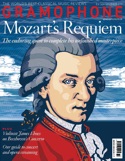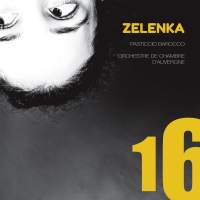Texte paru dans: / Appeared in: |
|
|
Outil de traduction (Très approximatif) |
|
|
Reviewer:
Charlotte Gardner
So would go the argument of many a Baroque music listener at least, which is why the world needs ensembles like Pasticcio Barocco. Consisting of oboists David Walter and Helene Gueuret, bassoonist Fanny Maselli, bassist Esther Brayer and harpsichordist Mathieu Dupouy, Pasticcio Barocco argue for Baroque performance being about more than simply gut strings or woodwind with wider bores and fewer keys, and this second volume of theirs devoted to Zelenka’s music takes their modern-instrument argument further than their first; because while the first featured them alone with the quirky Czech’s trio sonatas, on this second volume they are joined by the modern-instrument Orchestre de Chambre d’Auvergne for two orchestral works: ZWV189, a French-style overture for two oboes, bassoon and strings, and the concerto grosso-like ZWV187 Simphonie a 8 concertanti with its concertino section made up of oboe, solo violin, bassoon and basso continuo. Their modern-instrument argument stands up well in the hearing, too. If you’re really listening intently for what’s ‘missing’ you’ll point out that the metal makes for a less softly multi-hued sound, but ultimately this is overridden by the actual performances. Take Harumi Ventalon’s initial solo violin entry in ZWV189: while it’s true that you first hear harder-toned metal, any worries are swiftly dispelled by the ease with which his virtuoso passagework unfurls itself. Meanwhile, in the woodwind area, modern instruments bring clear gains, Zelenka’s pig-to-play writing no doubt sounding this silky smooth thanks to Walter and Gueuret’s many-keyed modern oboes. Indeed, the overriding impression is of period-appropriate textures and playing, along with some highly sympathetic chamber-playing. Add nice bright engineering and a democratic balance to the sound and there’s much to enjoy. |
|




